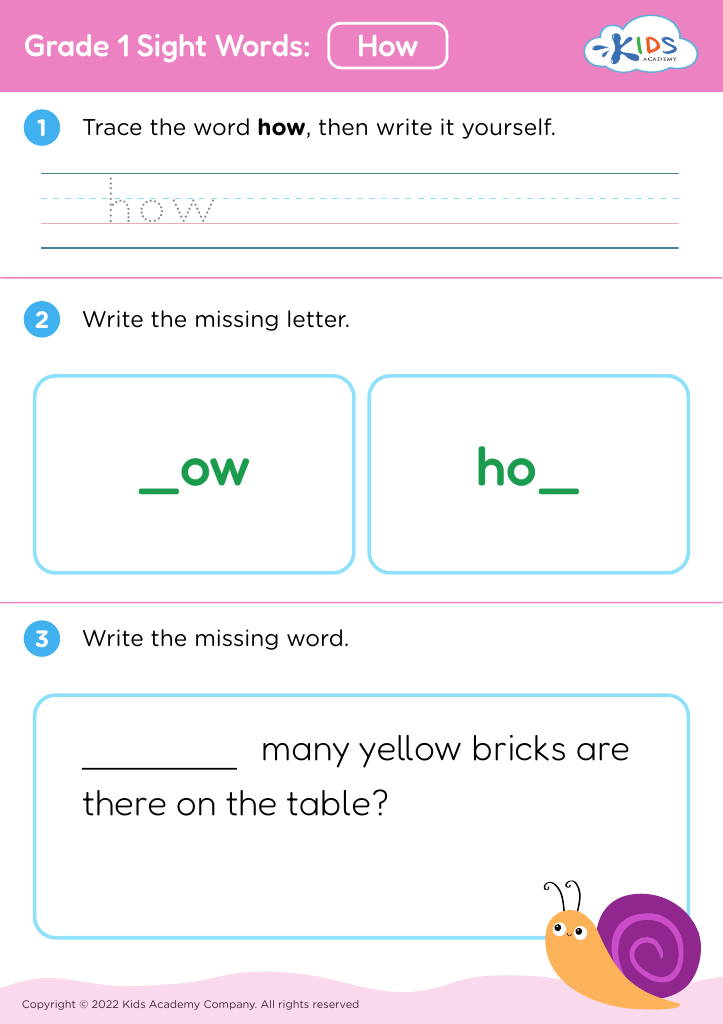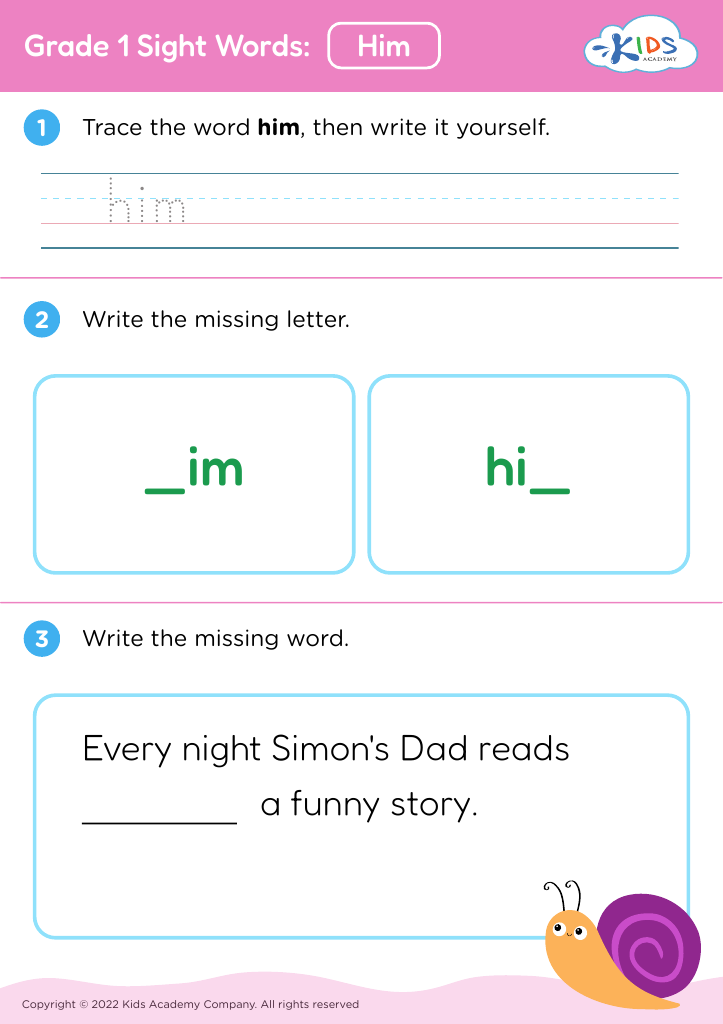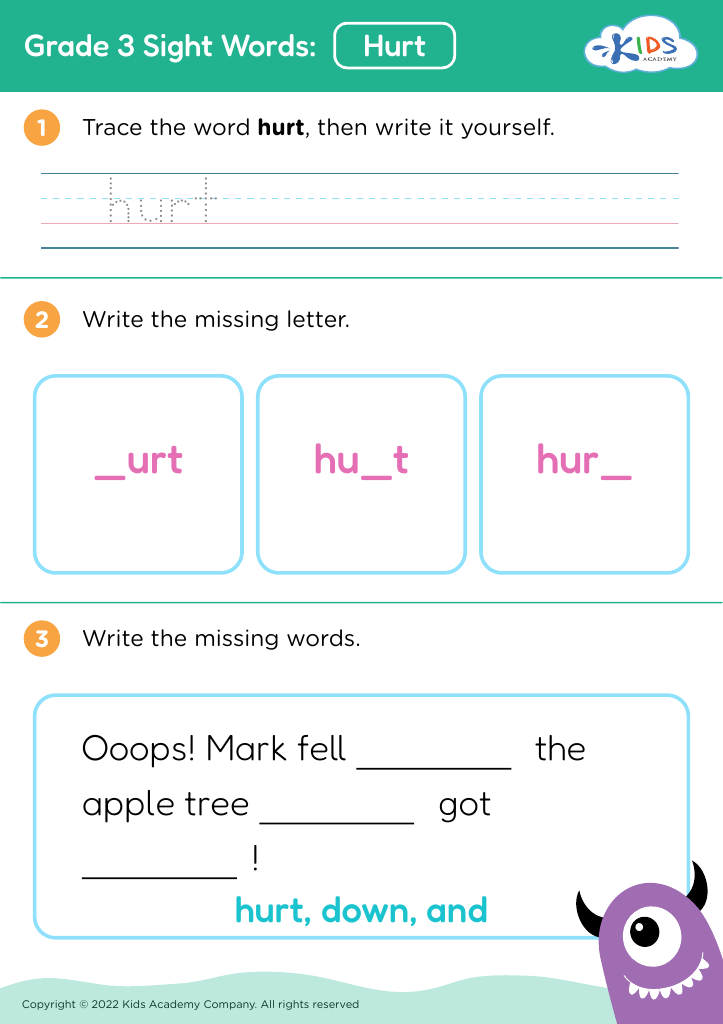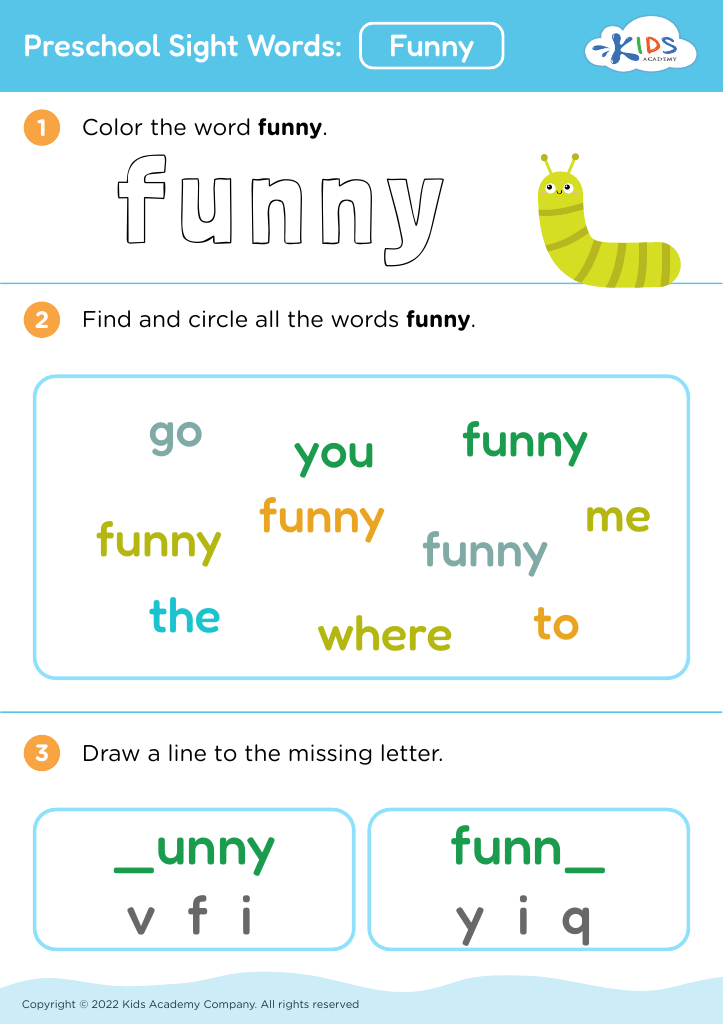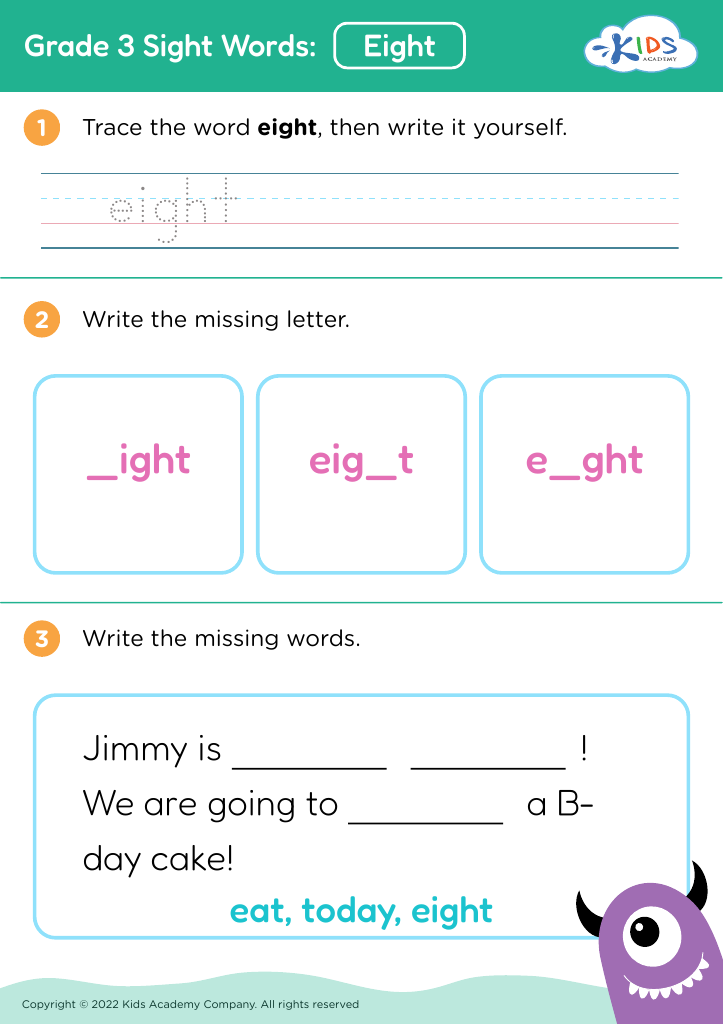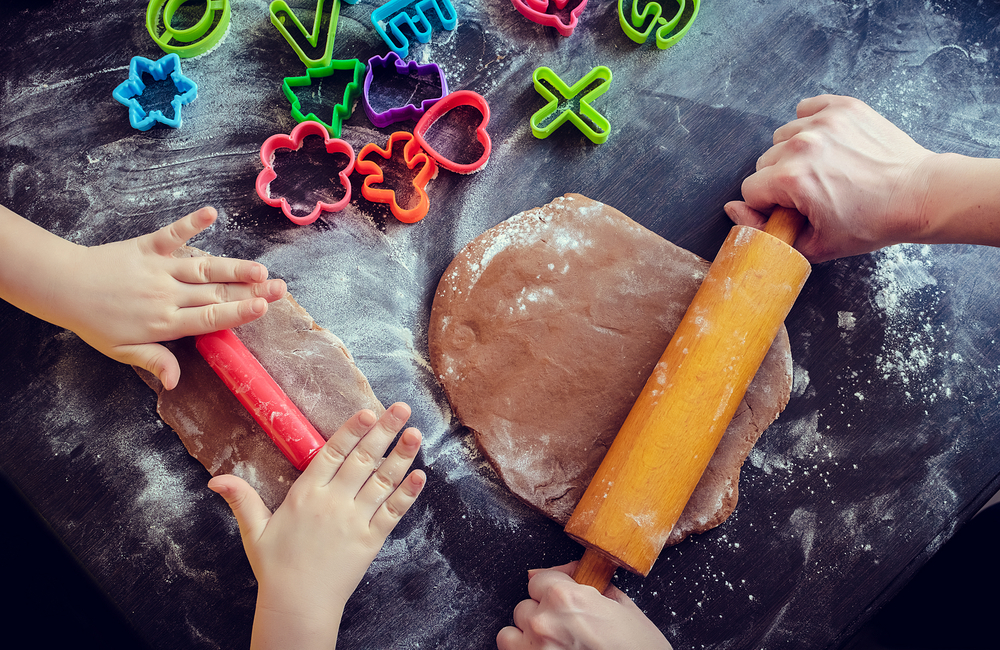Counting skills Worksheets for Kids - Page 22
510 filtered results
-
From - To
Question/Answer
How to train the Counting skill in Kindergarten students learning about Math?
To train counting skills in Kindergarten students, start with hands-on activities using physical counters like blocks, beads, or buttons. Practice counting objects together, emphasizing the number sequence. Introduce counting songs, rhymes, and games to make learning fun. Incorporate visual aids, such as number lines and charts. Gradually progress to counting higher numbers and introduce simple addition by counting objects combined.
Why is the Counting skill important for Kindergarten students?
The counting skill is crucial for kindergarten students as it lays the foundational basis for all future mathematics learning. It helps in developing number sense, understanding numerical relationships, and learning mathematical operations. Early proficiency in counting also supports problem-solving abilities and fosters confidence in handling numbers, which are essential skills for academic success and daily life.
How to test a Kindergarten student’s Counting skills?
To test a Kindergarten student's counting skills, ask them to count objects (like blocks or crayons) aloud from 1 to 20, or as high as they can go. Observe if they can match one number to each object without skipping or repeating numbers, demonstrating one-to-one correspondence, a fundamental counting principle. This simple exercise assesses their ability to count objects accurately.

